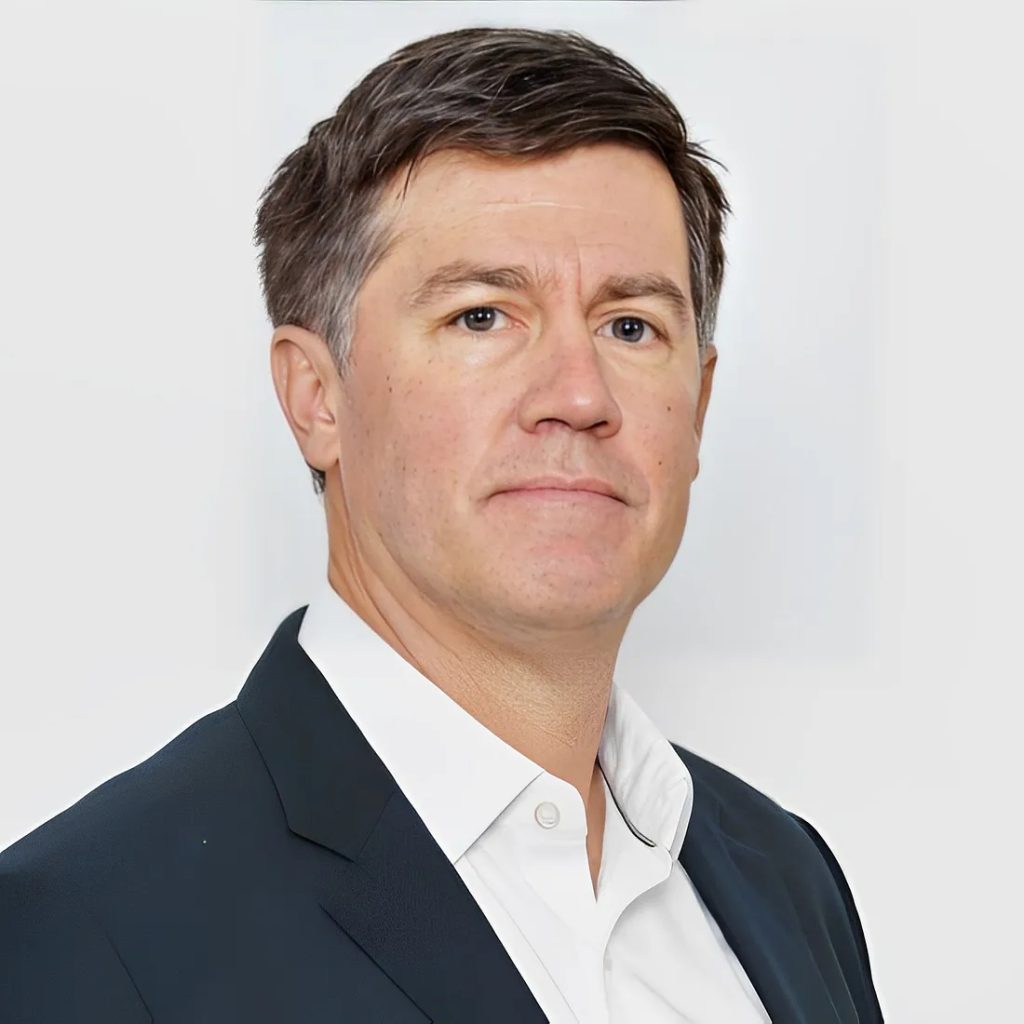
Journey from Epidemiology to Customer Experience Revolution – Rainier Mallol
“The one piece of advice I would give is: “Start with empathy.” Whether you’re building a product, leading a team, or pitching to investors, the core of your business should be understanding people’s needs. Empathy helps you create solutions that truly solve problems and connect with your audience on a deeper level.” – Rainier Mallol
Today we feature Rainier Mallol, the founder at cxgenies. We hear their story in their own words, their successes, their challenges and their insights.
Let’s start by getting to know you. Can you please tell us a little bit about you and what you do?
I was born and raised in the vibrant streets of Santo Domingo in the Dominican Republic. At 18, I pursued a degree in Telematics Engineering at Pontificia Universidad Católica Madre y Maestra, where I graduated magna cum laude. My passion for blending technology with societal needs led me to Singularity University at NASA Ames Research Park. There, I immersed myself in exponential technologies aimed at tackling humanity’s grand challenges.
My journey took a pivotal turn when I co-founded AIME (Artificial Intelligence in Medical Epidemiology) in 2015. We harnessed AI to predict and manage disease outbreaks like dengue and Zika, impacting over 35 million lives across several countries. This work earned international recognition, including being featured in Forbes’ 30 Under 30 and receiving accolades from the World Economic Forum.
But my story isn’t just about titles and achievements; it’s about a relentless drive to make a meaningful impact. I’ve always believed that technology, when applied thoughtfully, can be a powerful force for good. This belief has been the cornerstone of my career and continues to fuel my ventures today.
A great introduction and start to this interview. Can you please tell us, how did you start, from what age, and what made you decide to change direction and start?
Leading AIME allowed me to see firsthand how AI could revolutionize how we predict and respond to health crises. However, as the years progressed, especially during my time advising governments on technological responses to the COVID-19 pandemic, I began to notice a recurring theme across industries: the critical need for better customer experience management.
Businesses were struggling to keep up with rapidly changing customer expectations, and I saw parallels between predicting disease outbreaks and anticipating customer needs. Both required analyzing vast amounts of data to make proactive decisions.
This realization was my catalyst. I decided to pivot my focus from public health to the corporate realm, aiming to transform how businesses interact with their customers. Founding cxgenies was a natural progression—a way to apply my expertise in AI and data analytics to a new domain where I could continue to drive positive change.
Thank you for that insight. So can you tell us…What does your business do and where is your company based?
Absolutely! Cxgenies is a platform that automates customer experience management and quality evaluations of service operators across all interaction channels—be it calls, emails, chats, social media or any other type.
We’re headquartered in the United States with a significant presence in Latin America, reflecting our commitment to serving a diverse range of markets. Our platform leverages advanced generative AI to transform every customer interaction into an opportunity for improvement.
By analyzing customer feedback and operator performance data in real time, we provide businesses with personalized action plans to enhance service quality and boost customer satisfaction. We don’t aim to replace existing communication channels; instead, we integrate seamlessly with them, acting as the analytical engine that elevates their effectiveness.
Our mission is to harness the power of AI to not only improve customer experiences but also to optimize the performance of service operators, ultimately driving loyalty and growth for businesses.
How long has your company been operating, and what have been some of the key milestones in its development so far?
We launched cxgenies in early 2024, so we’re a relatively new player in the market. Despite our youth, we’ve hit the ground running with several key milestones that highlight our rapid progress.
One of our first achievements was developing our core AI platform ahead of schedule, thanks to the dedicated efforts of our talented team. Shortly after, we secured our first major client in Latin America, which was a significant validation of our concept and technology.
We’ve since expanded our client base and formed strategic partnerships with established technology firms to enhance our platform’s capabilities. Another proud moment was assembling a diverse team that not only brings a wealth of experience but also shares a unified vision for transforming customer experience management.
Looking ahead, we’re focused on continuous innovation and expanding our reach. We’re excited about the future and are committed to making cxgenies a leader in AI-enabled customer experience solutions.
What’s the story behind your success? What led to your aha moment? how did you get to where you are now?
The story behind my success is rooted in a continuous quest to bridge gaps and solve problems through technology. The aha moment for cxgenies came during the pandemic when I was working with government agencies to manage crisis responses.
I realized that the same AI tools we were using to predict health trends could be adapted to predict and enhance customer behaviors and experiences. Starting cxgenies wasn’t without its challenges. Transitioning from public health to customer experience management required a steep learning curve.
There were skeptics who doubted the applicability of my background in this new arena. However, I was fortunate to have a dedicated team who believed in the vision and brought invaluable expertise to the table. We had to be bold and innovative, often venturing into uncharted territory.
Late nights were spent developing algorithms, testing our platform, and refining our approach based on client feedback. Support came from mentors and colleagues who provided guidance and opened doors to key industry connections. On the flip side, some potential partners didn’t share our vision, but their hesitation only strengthened our resolve.
What truly propelled us forward was a shared belief that we could make a significant impact on how businesses engage with their customers. Seeing the tangible improvements our clients experienced fueled our passion and confirmed that we were on the right path.
We know that there are ups and downs in business. What’s been your biggest lesson so far?
The journey with cxgenies has been nothing short of a rollercoaster, filled with exhilarating highs and challenging lows. One of the most profound lessons I’ve learned is the importance of adaptability—being willing to pivot when the path ahead is uncertain.
Early on, we faced a significant challenge that tested this very lesson. Just a few months after our launch in 2024, we secured a major client who was enthusiastic about implementing our platform. It felt like the rising action of our story; everything was aligning perfectly.
However, as we began the integration, we hit an unexpected roadblock. Their legacy systems were far more outdated and incompatible with our technology than we had anticipated. This was our climax—a moment where everything could have fallen apart. The client was growing impatient, and our team was stretched thin trying to develop custom solutions. It seemed like all our efforts might lead to a failing action where we could lose not just the client but also our reputation in the industry.
We had to make a tough decision. Instead of forcing our existing platform to fit their systems, we took a step back and re-evaluated our approach. We decided to develop a modular version of our platform that could integrate with a wider range of systems, both old and new.
This was no small feat and required countless late nights and a significant allocation of resources. The resolution came when we successfully deployed the new modular platform for the client. Not only did we meet their needs, but we also opened up a new market segment for cxgenies—businesses with legacy systems that were previously considered too outdated for advanced AI solutions.
That’s insightful. How has that lesson influenced your approach to decision-making, especially when faced with uncertainty?
Facing that pivotal challenge with our first major client was a defining moment in my journey with cxgenies. Initially, my approach to decision-making was heavily anchored in meticulous planning and a strong belief in our original vision. The introduction of any uncertainty felt like a threat to the carefully crafted path we had set.
As we grappled with the incompatibility of our platform and the client’s legacy systems, the rising action unfolded. The pressure intensified, and the straightforward path we envisioned became a maze of unforeseen obstacles. It was during this climax that I realized my existing approach wasn’t sufficient; sticking rigidly to our plan was not going to save the situation.
The falling action began when I consciously decided to shift my mindset from resistance to adaptability. I embraced the uncertainty and encouraged my team to think creatively about solutions rather than fixating on the problem. We explored new technologies, consulted with external experts, and remained open to completely redesigning aspects of our platform.
This resolution not only salvaged our relationship with the client but also enriched our company’s capabilities. Now, when faced with uncertainty, I see it as an opportunity for innovation rather than a setback. I’ve learned to make decisions more dynamically, incorporating flexibility into our strategies from the outset.
If there’s one thing I wish I had known before starting my journey, it’s the importance of embracing uncertainty and flexibility. Early in my career, I was so focused on having a clear, defined plan that I sometimes overlooked the value of adapting quickly to change. When you’re launching something new, things rarely go as planned. I’ve learned that being able to pivot without losing sight of the core mission is an essential skill.
If you were to go back in time, what piece of advice would you give to your younger self?
If I could journey back and have a conversation with my younger self, perhaps standing at the crossroads of deciding to become an entrepreneur, I would say: “Don’t be afraid to leap, but remember that the net you build is woven from adaptability and resilience.”
In the early stages of my career, I was fueled by a passion to make a significant impact, often setting ambitious goals without fully appreciating the value of the lessons learned along the way. I would encourage my younger self to cherish the journey as much as the destination.
Regarding encouragement to start a business, I was both fortunate and challenged. While my curiosity and drive were innate, not everyone around me saw entrepreneurship as a viable path, especially in the realms I was passionate about, like applying AI to global health crises.
To the people who doubted me, I now understand that their scepticism was less about my capabilities and more about their understanding of uncharted territories. I would tell myself to view doubts—both internal and external—not as deterrents but as prompts to refine my vision.
Questioning is a natural part of growth. It’s okay to reassess and pivot; what’s important is staying true to the core mission of making a positive impact. There were certainly moments when I wondered if the entrepreneurial path was the right one.
The weight of responsibility, the long hours, and the inevitable setbacks can be daunting. But I would reassure my younger self that these challenges are integral to the journey. They build character, impart wisdom, and make the eventual successes all the more rewarding.
We’re nearly halfway through our interview so it’s a great time to ask how you run your business. What three tools make your business run better?
AI Development and Data Analytics Platform (Azure AI & ML Studio): Azure AI & ML Studio is our backbone for building, testing, and deploying the AI models that power cxgenies. It provides a robust environment for data analysis, machine learning, and seamless integration with other systems. We chose Azure because it offers scalability, security, and the ability to handle large datasets efficiently.
Before adopting this, we used a mix of on-premise solutions, which limited our flexibility and scalability. Transitioning to Azure allowed us to streamline our development process, and we have a dedicated data science team managing this platform. Without it, we’d lose the efficiency that makes cxgenies competitive, so we’re always exploring backup cloud solutions to mitigate any risks.
Customer Relationship Management (CRM): Managing client interactions is crucial for our business. HubSpot allows us to track leads, manage customer relationships, and automate marketing efforts. We needed a tool that could grow with us, and after testing several options, we found HubSpot to be the most adaptable.
Before this, our client management was scattered across multiple platforms, leading to inefficiencies. Our sales and marketing teams depend heavily on it to maintain a seamless customer journey, and if we didn’t have it, we’d need to invest significant resources in developing an in-house CRM solution.
Collaboration and Project Management Tools: Effective communication and project management are vital, especially as we work across different regions. We use Asana for task tracking and Slack for real-time communication.
These tools help teams stay aligned and transparent, ensuring everyone knows what’s happening, even across time zones. Before adopting them, we struggled with email overload and coordination issues. If we had to operate without these, we’d rely on more manual project tracking methods, but it would undoubtedly slow us down. We’re also exploring tools like Monday.com for more integrated workflow automation.
What do you know now that you wished you had known before?
If there’s one thing I wish I had known before starting my journey, it’s the importance of embracing uncertainty and flexibility. Early in my career, I was so focused on having a clear, defined plan that I sometimes overlooked the value of adapting quickly to change.
When you’re launching something new, things rarely go as planned. I’ve learned that being able to pivot without losing sight of the core mission is an essential skill. Now, I build adaptability into every aspect of our strategy, knowing that the best solutions often come from unexpected challenges.
I also wish I had understood sooner how crucial it is to build the right team from the start. The success of a business doesn’t just come from having a great product—it’s about having a team that believes in the vision and is capable of executing it. Finding people who are not just skilled but also aligned with the company’s values can make all the difference.
Based on what you’ve learned, what are some common pitfalls you’ve observed other companies in your space fall into?
One common pitfall I’ve observed is over-reliance on technology without the human element. While AI and automation are powerful, customer experience management is ultimately about people. Some companies invest heavily in tech but forget to balance it with empathetic customer service. This leads to a disconnect, where interactions feel impersonal. Technology should enhance human interaction, not replace it.
Another pitfall is failing to scale thoughtfully. I’ve seen companies rush to expand their services or enter new markets without ensuring their core product is robust enough to handle the demand. Rapid scaling can lead to stretched resources, service issues, and ultimately damage to brand reputation. It’s important to have a solid foundation before chasing growth.
Lastly, ignoring data privacy and ethical concerns can be a major misstep. Companies need to be transparent about how they use customer data, especially with the growing emphasis on data rights. Building trust requires companies to prioritize privacy from the start, not just as an afterthought.
What future life goals do you want to achieve and why?
Looking ahead, I’m driven by a vision to expand the impact of AI beyond traditional sectors. I want to see cxgenies grow into a platform that not only improves customer experiences but also empowers small businesses that previously lacked access to advanced technology. Democratising AI and making it accessible to more people is a big goal because I believe it can drive meaningful economic growth, particularly in developing regions.
To finish our inspire questions…”We believe that sharing inspiring words can inspire others.” If there was one positive thing you would say to someone to inspire and empower them what would it be and why?
The one piece of advice I would give is: “Start with empathy.” Whether you’re building a product, leading a team, or pitching to investors, the core of your business should be understanding people’s needs.
Empathy helps you create solutions that truly solve problems and connect with your audience on a deeper level. When I started AIME, we didn’t just build an AI model; we built something that could save lives because we understood the fears and struggles of communities facing health crises.
The same principle applies to cxgenies—our platform is designed around understanding what customers and service operators need to thrive. Empathy also extends to your team. Building a business is hard, and there will be times when things don’t go as planned.
Having a team that feels understood, valued, and inspired makes navigating those tough times a lot easier. Starting with empathy doesn’t just make you a better leader; it makes your business more resilient and impactful.
“Thank you it has been great learning more about your founder story and cxgenies”
To learn more about cxgenies Visit cxgenies.com
Disclaimer:
The views, thoughts, information, and opinions expressed in the text, videos, images belong solely to those of the individuals involved, and do not necessarily represent those of Founderat.com and its corporate owners, employees, organization, committee, or other group or individuals

